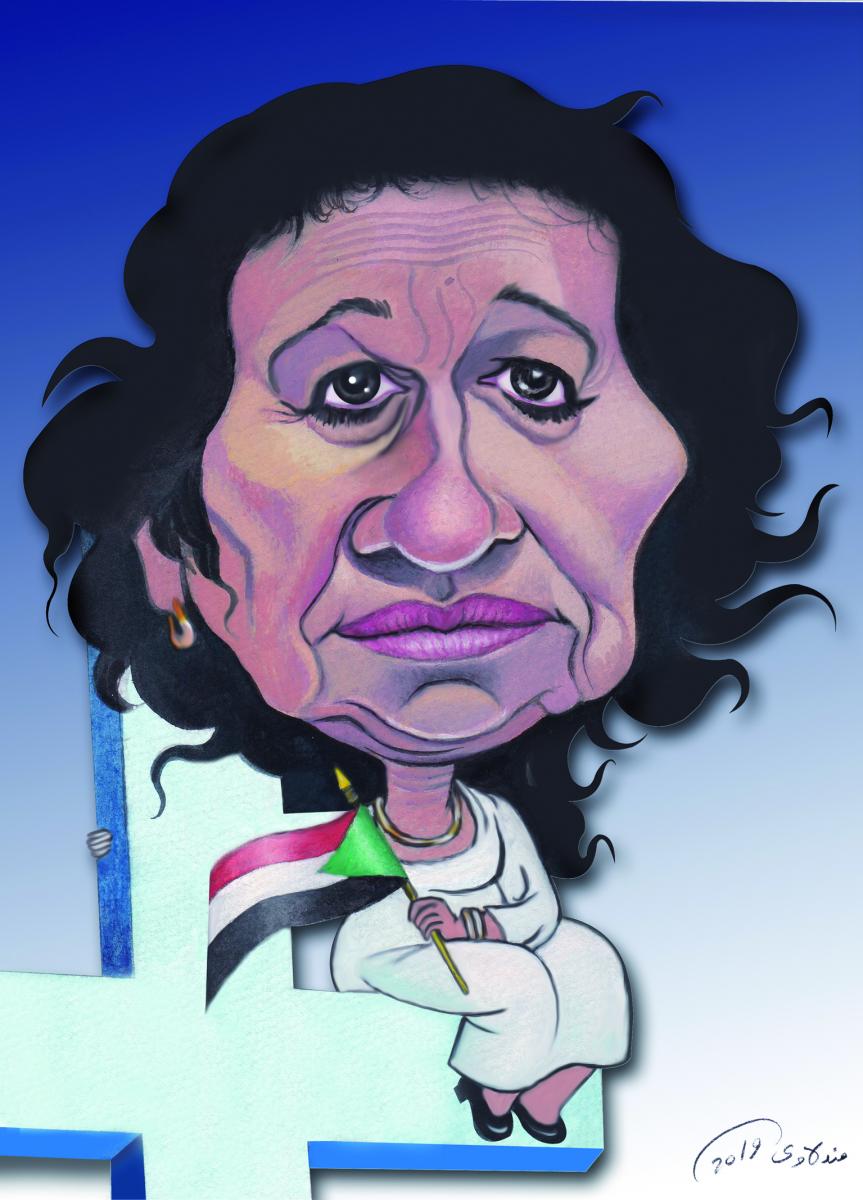
Raja Nicola Abdul Masih was born in the Masalma neighbourhood of Omdurman in Sudan in the 1950s. She is a member of Sudan’s Coptic Christian minority which represents 4.5% of the population (1.4 million people). She studied at Cairo University and graduated with a Law degree in 1980. After graduating in 1982, Raja was appointed to the Sudanese Ministry of Justice where she became a judge in 2005. Raja took part in international conferences, training programs and workshops on human rights and on enhancing women’s access to justice.
She represented the Ministry of Justice in the Special Commission for the Protection of the rights of Non-Muslims in Khartoum, which was created in 2007 and served as a mouthpiece to defend the rights of Copts in Sudan. She stated that the Commission closed down in 2011 against the wishes of the Christian community, after the secession of South Sudan. In September 2012, Nicola said that religious rights of Christians in Sudan asserted under the 2005 Interim National Constitution were not fully implemented, with some employers not giving Christians their legal two hours' right to prayer and schools not allowing Christian children to be absent on Sunday for attendance at religious services.
In July 2019, the July Political Agreement and the Draft Constitutional Declaration by the Forces of Freedom and Change alliance (FFC) and the Transitional Military Council (TMC) were signed following half a year of sustained civil disobedience and the 3 June Khartoum massacre. On August 20, 2019, Sudan's ruling military council formally disbanded, and the country's generals and opposition leaders formed a new 11-member joint ruling body, which is made up of six civilians and five soldiers. Among the civilians is Raja, who was appointed as the council's 11th member after an agreement by the TMC and the FFC. She became the first Christian women to be part of the Sudanese government since the country’s independence in 1965.
The choice of Nicola, as a member of the Sudanese Copt community, was seen as a symbol of respect for diversity, in particular to Sudanese Christians. Some observers hope she can be a voice for the many ethnic and religious minorities who were persecuted under Bashir. Shortly after being sworn in as a member of the Sovereignty Council, she described her vision of the task of the council, stating, “We only asked the Sudanese people to be patient as we may all know that the destruction that happened during the past 30 years is huge and may not be addressed in only three years. But we will double our efforts and work together in the council to meet all the demands of the revolution.”
In an interview with VOA, Raja said that the process to rebuild the country will be long, but that the new government are determined. “We shall try to rebuild our country, we shall try to rebuild our economy, we shall begin to stop all the armed movements and work for peace and justice for all Sudanese on an equal basis regardless of race or religion or any political opinion or any affiliation,” she said. “What happened in 30 years cannot be rebuilt in three years. But we shall try our best to do whatever we could.”







